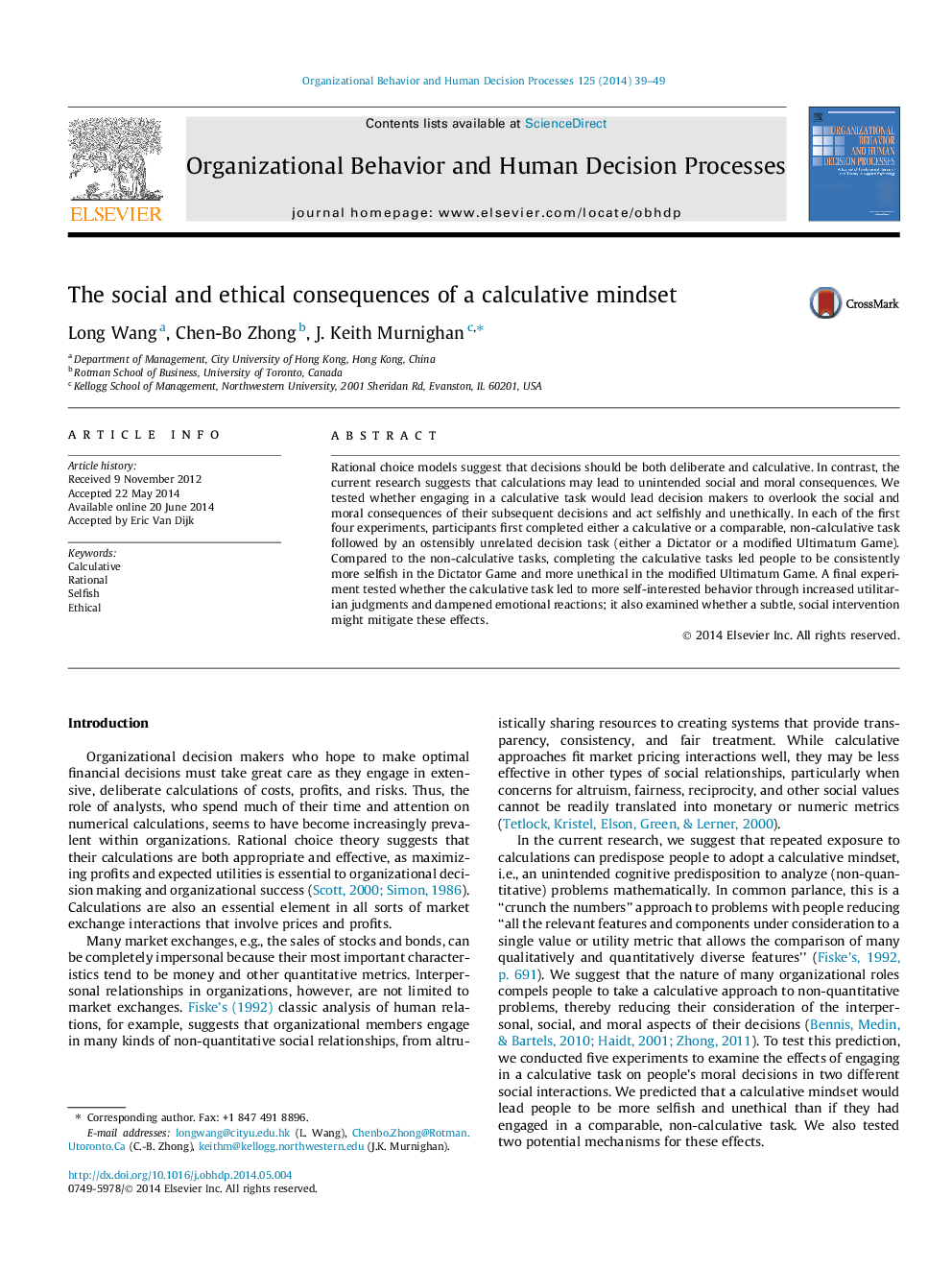| Article ID | Journal | Published Year | Pages | File Type |
|---|---|---|---|---|
| 888570 | Organizational Behavior and Human Decision Processes | 2014 | 11 Pages |
•Rational models suggest that decisions be calculative.•But calculating does not always fit for social and moral problems.•We show that a calculative mindset leads to selfish and unethical action.•We also show that a simple social-awareness prompting can limit these effects.•And that utilitarian thinking and dampened emotions partially explain these effects.
Rational choice models suggest that decisions should be both deliberate and calculative. In contrast, the current research suggests that calculations may lead to unintended social and moral consequences. We tested whether engaging in a calculative task would lead decision makers to overlook the social and moral consequences of their subsequent decisions and act selfishly and unethically. In each of the first four experiments, participants first completed either a calculative or a comparable, non-calculative task followed by an ostensibly unrelated decision task (either a Dictator or a modified Ultimatum Game). Compared to the non-calculative tasks, completing the calculative tasks led people to be consistently more selfish in the Dictator Game and more unethical in the modified Ultimatum Game. A final experiment tested whether the calculative task led to more self-interested behavior through increased utilitarian judgments and dampened emotional reactions; it also examined whether a subtle, social intervention might mitigate these effects.
